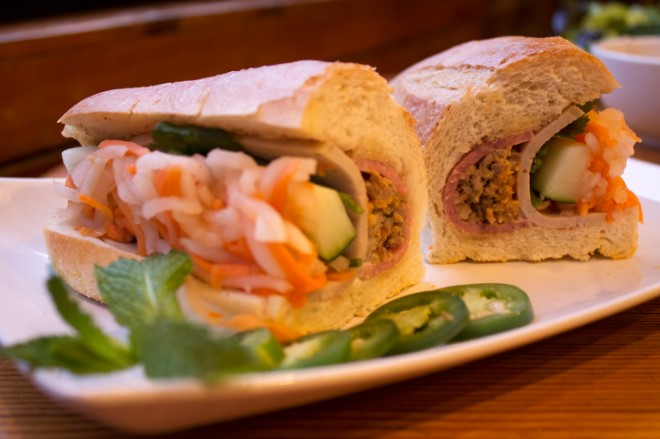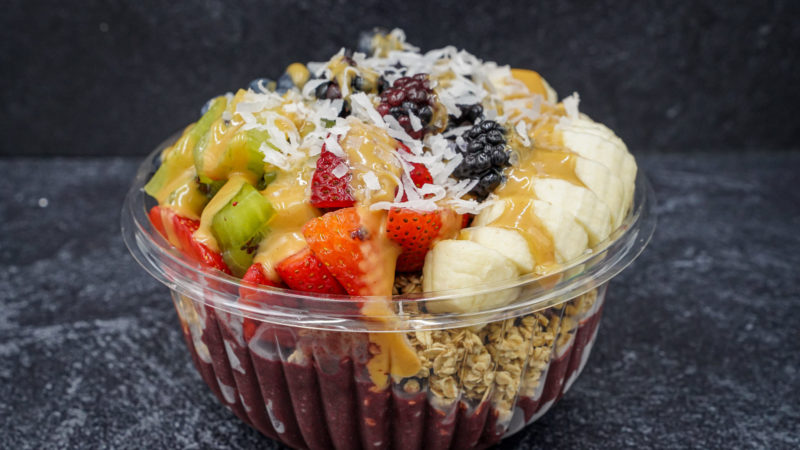Reframing the way we think about healthy foods can help us manage our physical and mental health through the cooler months ahead, the TV presenter and “5:2 guy” says.

Pleasure might not be something many of us associate with weight loss or healthy foods but there’s no reason it can’t be, says Dr Michael Mosley.
In fact, the enjoyment of cooking and eating is central to good health, says the British television presenter and “5:2 guy”, who is visiting Australia for a series of live shows and to work on a new series for SBS called Australia’s Sleep Revolution.
Food that’s good for our body also tends to be good for our brain, and while it may seem counterintuitive, many people feel better rather than worse a few days into a new eating regime, Mosley says.

“People are often surprised,” says Mosley, whose Fast 800 program promotes weight loss through intermittent fasting and an energy-controlled food plan.
They stop feeling hungry and notice a lift in mood “rather than what you might think about going on a diet, which is feeling hungry and miserable all the time”.
Here are his top 10 tips for the cooler months ahead.
Kick comfort eating
One of the biggest mistakes people make in winter is to give into the idea of wintry cravings, says Mosley.
Increasing evidence shows these so-called “comfort foods” can be anything but, ultimately leading to poorer mental health.
“It’s cold, it’s miserable … [we have] a tendency to think, well, it’ll make me feel better if I have that doughnut,” he says.
“Try to resist it because it all adds up. These ‘comfort foods’ don’t really provide long-term comfort. Although it gives you a temporary dopamine lift when you eat junk food, in the long term it can lead to depression and anxiety.”

Keep it simple
Mosley is a fan of easy, accessible Mediterranean recipes rich in vegetables, oily fish, olive oil and nuts.
“They need to be super healthy, full of nutrients, but also super tasty and easy to prepare,” he says.
Anything that’s quick and affordable will be ultimately more sustainable, as will flexible dishes that can be adapted for other family members who might want to eat different portions or sides.
“What we’re really trying to do is teach long-term habits. So when you come off the diet you have a whole range of recipes and menus that you can call on.”
Keep moving
Staying active over cooler months is important but relying on willpower alone is often tricky, Mosley says.
Rather than trying to squeeze dedicated gym time into an already overpacked schedule, try working exercise into your existing routine and habits, say with a few squats and push-ups first thing in the morning or by doing whatever naturally motivates you and fits into your day.
“Don’t be afraid of going out in all weathers,” Mosley says.
“There’s an expression in England – that there’s no such thing as bad weather, only bad clothes, so embrace the light and embrace the rain.”
Take it outside
Heading outdoors in winter can help you literally lighten up, especially if you bring a friend or two, Mosley says.
“There’s increasing evidence of the impact of light on mood,” he says.
“Another thing we know is one of our greatest sources of happiness is meeting up with friends. Even incidental short meetings can really boost your mood and going or a walk is a perfect excuse.
“Also, in winter you have a tendency to meet people indoors and that means you’re going to be sharing more bugs, whereas when you’re outdoors there are fewer germs floating around than when you’re crowded into a small space.”

Shift your palate
Genetics and family cooking preferences can influence weight gain, but it’s possible to shift your palate and microbiome by making healthier food choices, Mosley says.
Increasing the amount of fibre in your diet and eating more fermented foods can help reduce cravings for treats such as chocolate, for example.
“It seems to be that part of these cravings come from your gut bacteria, and you can change them by changing what you eat,” Mosley says.
Sometimes a stricter approach may be necessary, however.
“I will never crave broccoli in the same way I crave chocolate, to be frank, so I find the best way of coping with that is just keeping it out of the house,” he says.

SMITH and GILMOUR/Hachette Australia
Curb carby cravings
Cravings for carb-heavy foods seem to be linked to a few specific factors, Mosley says.
Lack of light is the first – another good reason to step outside. Poor second is sleep. “We know after a bad night’s sleep you eat on average 300-400 more calories and it’s specifically carbs we seem to seek and give us a lift there,” he says.
Finally, fibre seems to play an important role. “If you can improve the fibre contents of your diet then there’s some evidence that will reduce your carb cravings.”
Keep your gut happy
Gut health is “all about making sure you’re eating lots of different sorts of fibres”, Mosley says.
That means eating a wide variety of fruits and vegetables, and throwing in extra herbs wherever possible.
If fresh produce is in short supply over winter, head to the freezer section of your supermarket to load up on snap-frozen ingredients, which are often just as good as or even better than fresh.
“In winter sometimes fresh fruit and veg is more limited and more expensive but don’t be afraid of the frozen stuff – it’s just as healthy,” Mosley says.

Smart swaps
When it comes to cooking, Mosley’s wife Dr Clare Bailey suggests skipping the usual stodgy winter dishes for healthier options that are just as satisfying.
Spiralised zucchini is a good swap for spaghetti, for example, or you can mix them together for a lighter pasta dish with extra veg.
Mashed cauliflower works wonderfully on top of a shepherd’s pie instead of the usual potato – or try celeriac for a high-fibre, lower-carb option in place of your usual mashed potato or chips.
If you’re craving lasagne, try blanched cabbage leaves or sliced zucchini in place of pasta sheets, or try just using a single lasagne sheet – “just enough to keep the kids happy”, says Bailey, who co-authored The Fast 800 Easy cookbook.
I will never crave broccoli in the same way I crave chocolate to be frank, so I find the best way of coping with that is just keeping it out of the house.
Dr Michael Mosley
Or simply serve a smaller portion of your usual recipe alongside salad or vegetables.
The couple are also big fans of pulses come wintertime, especially dahl and other legume dishes.
“Beans and lentils hugely benefit from having lots and lots of olive oil added to them,” Bailey says.
“Or make your own baked beans with a tin of mixed beans and tinned tomatoes – it’s super easy.”

Smith and Gilmour/Simon and Schuster Australia
Indulge – in moderation
If you’re hoping to lose weight quickly, then alcohol and sweet treats aren’t the best idea in the short term, Mosley says.
Not only do they contain extra energy, but in the case of alcohol, you can become disinhibited and end up reaching for a bowl of chips or snacks.
If you’re looking at more gradual weight loss or just a healthier way of life, however, then the occasional glass of red wine or home-cooked treat is usually fine, Mosley says.
“Nobody’s ever going to give up chocolate entirely, but it’s much better if you make your own [cake or dessert] because then you know what goes into it,” he says.
It’s a similar story for processed food: “Life is busy and if you’re on the road or stuff is happening, try to minimise it rather than say ‘I’m never going to eat it again.’ ”

Stay on track
Healthy habits and good intentions can easily become unstuck by sickness, stress or just everyday life, so you need a few tricks to keep yourself on track, Mosley says.
Meal planning is key, as is picking a sustainable diet that suits your temperament and lifestyle, whether it’s low-carb or low-calorie, or a version of time-restricted eating and intermittent fasting, where you either fast or limit food for a set period such as early evening to late morning or on certain days of the week.
Mosley also recommends setting yourself specific health-related or weight-loss goals and making them as detailed as possible – for example, a certain number of steps per day, or reducing your blood pressure or waist measurement.
Then keep yourself accountable by actually measuring yourself against them, or even sharing them with friends and family.
For people in middle age or with a family history of diabetes, Mosley suggests buying a blood pressure monitor and a blood sugar monitor so you can easily test yourself.
Stand on the scales once a week, or do as Mosley does and keep track of any creeping weight gain with a “tight belt”, which gives you instant feedback on how your body is changing.
“Individual goals need to be specific, they need to be measurable and they need to be achievable,” Mosley says.
“There’s no point in saying ‘I’m going to run a marathon’ if you know you’re never going to run a marathon.”
The best recipes from Australia’s leading chefs straight to your inbox.
Sign up







More Stories
Hanco’s: Bringing the Flavors of Vietnam to Brooklyn
TropiBowls Bring Healthy Food to Tamarac • Tamarac Talk
How can we make our brains prefer healthy food? – study